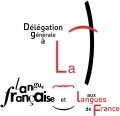English
Parrainée par:


Subventionnée par:



Invited Conferences
Philipp Cimiano, Institut für Angewandte Informatik und Formale Beschreibungsverfahren - AIFB, Universität Karlsruhe (TH) |
On the relation between ontology learning, engineering, evolution and
expressivity
In this talk we discuss the connection between ontology engineering, learning and evolution of ontologies over time in relation to the expressivity of the underlying logical formalisms.
While expressive ontologies are needed for a number of applications and reasonably expressive logics are currently considered within the Semantic Web, people rarely make use of expressive logical features when modeling ontologies. In fact, most ontologies are loosely modeled and lack conceptual preciseness. This is where ontology learning techniques which learn expressive primitives on the basis of textual data can support a human engineer.
As the world and data are constantly changing and evolving, ontology learning needs to be dynamic in the sense that it is able to detect and perform necessary changes, thus allowing the ontologies to evolve over time. However, as we are considering expressive logical formalisms, the process of ontology evolution can introduce inconsistencies which need to be resolved in order to allow for meaningful inferences to be derived.
The talk will feature short introductions to the Semantic Web and the field of ontology learning. Further, we will discuss various approaches for learning expressive ontological primitives, such as disjointness axioms, complex class descriptions, rules etc. In order to resolve potential inconsistencies introduced by such methods, we present an approach based on finding minimally inconsistent subsets which is guided by axiom metadata.
Finally, we discuss how ontology evolution and other methods for learning ontologies have been implemented in our own ontology learning framework Text2Onto.
Kyo Kageura, Library and Information Science Course Graduate School of Education, University of Tokyo |
Terminological Lexicons and Terms in Context: The Translator's Perspective
In this presentation I will try to clarify the relationship between terminological lexicons and terms in context, or between terminological lexicon-based research and corpus-based research, from the point of view of translators' practical need for terminology-related information during the translation process. This is, in a sense, a variation of the heavily discussed dichotomy between langue and parole, between language and texts, and between dictionary entries and language use in actual contexts, etc.
The aim of this presentation is to make the issue clearer and more concrete by introducing the translator's perspective, which will enable us to set a practical research agenda as well as to delve into the theoretical issues that reside in this dichotomy.